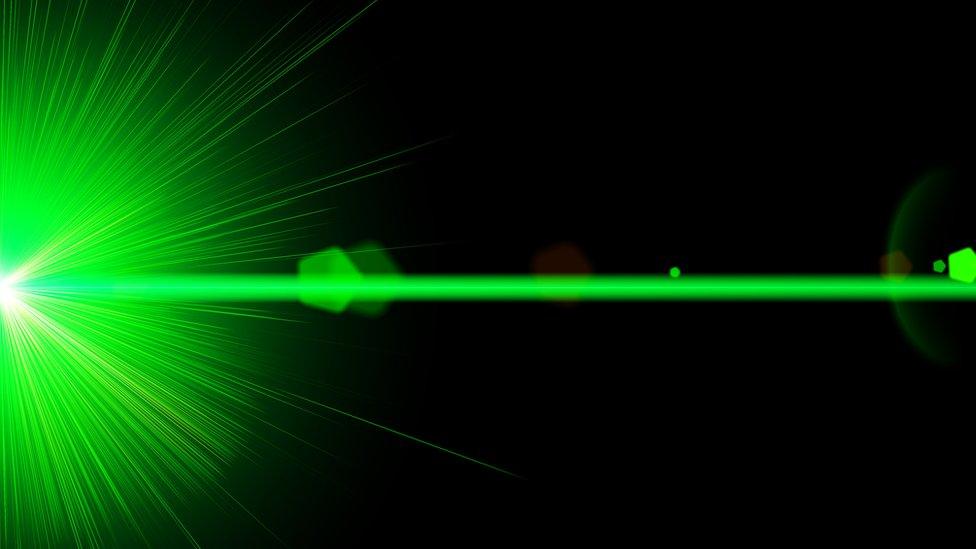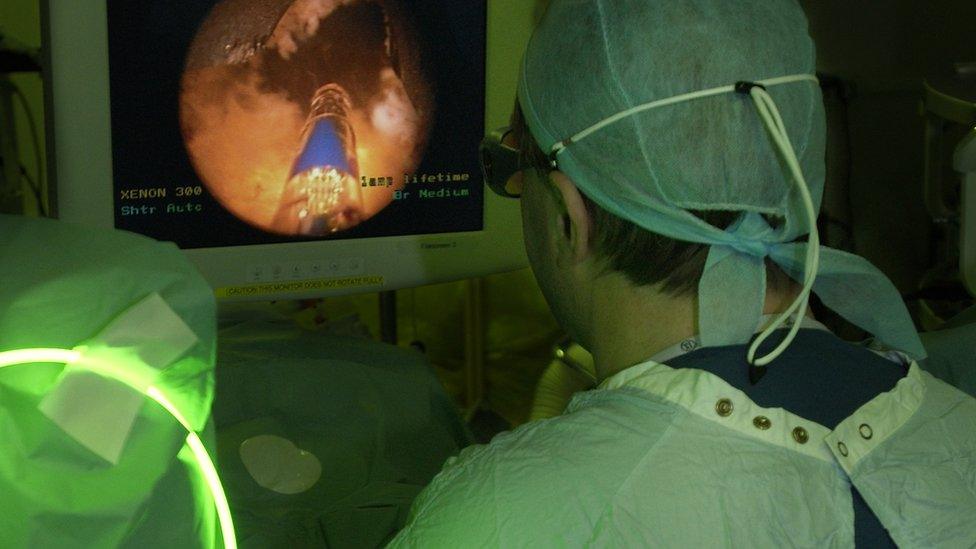Prostate laser therapy recommended to NHS
- Published

Some 13,000 men in England could benefit from a laser treatment to manage symptoms from an enlarged prostate, the NHS is being advised.
Most men over the age of 60 have non-cancerous growth of the prostate gland.
The National Institute for Health and Care Excellence says many of these, if they are having symptoms, could have the new therapy rather than conventional surgery.
The treatment delivers a beam of green light to vaporise overgrown tissue.
The standard care currently is to cut away the tissue using a thin, hot loop of wire during a procedure known as TURP.
While TURP is effective, experts say the new laser treatment could be more convenient for patients.

Unlike TURP, it can be done as a day treatment, meaning the patient does not have to stay in hospital overnight.
This should save the NHS money too - up to an estimated £3m, says the NICE.
For the laser treatment, a thin length of laser fibre is passed up the urethra (the tube in the penis that carries urine out of the body) until it reaches the target - the prostate gland that sits just below the bladder and enwraps the urethra.
The laser is then turned on to blast the tissue.
This should reverse any blockages and alleviate the patient's symptoms.
Prof Carole Longson, from the NICE, said: "Whilst benign enlarged prostates may not be life-threatening, the condition can impact on men's lives significantly.
"A procedure to reduce the amount of excess prostate tissue can improve the quality of life for men."
Higher risk men with very large prostates (bigger than 100ml) or severe symptoms, however, should still be treated routinely with a different type of laser.

The prostate
The prostate gland is part of a man's reproductive system, and its job is to make the fluid to carry and nurture sperm.
An enlarged prostate - known as BPH (benign prostatic hyperplasia) - is very common, particularly as men get older, and will not always need treating.
Left untreated, it can get in the way of emptying the bladder, meaning you have to go to the toilet more often or need to strain to pass urine.
In the long term, this could potentially cause other problems such as urine infections or damage to the bladder or kidneys.
BPH can sometimes be managed with medication, but a procedure, such as TURP or a laser treatment, may be recommended.